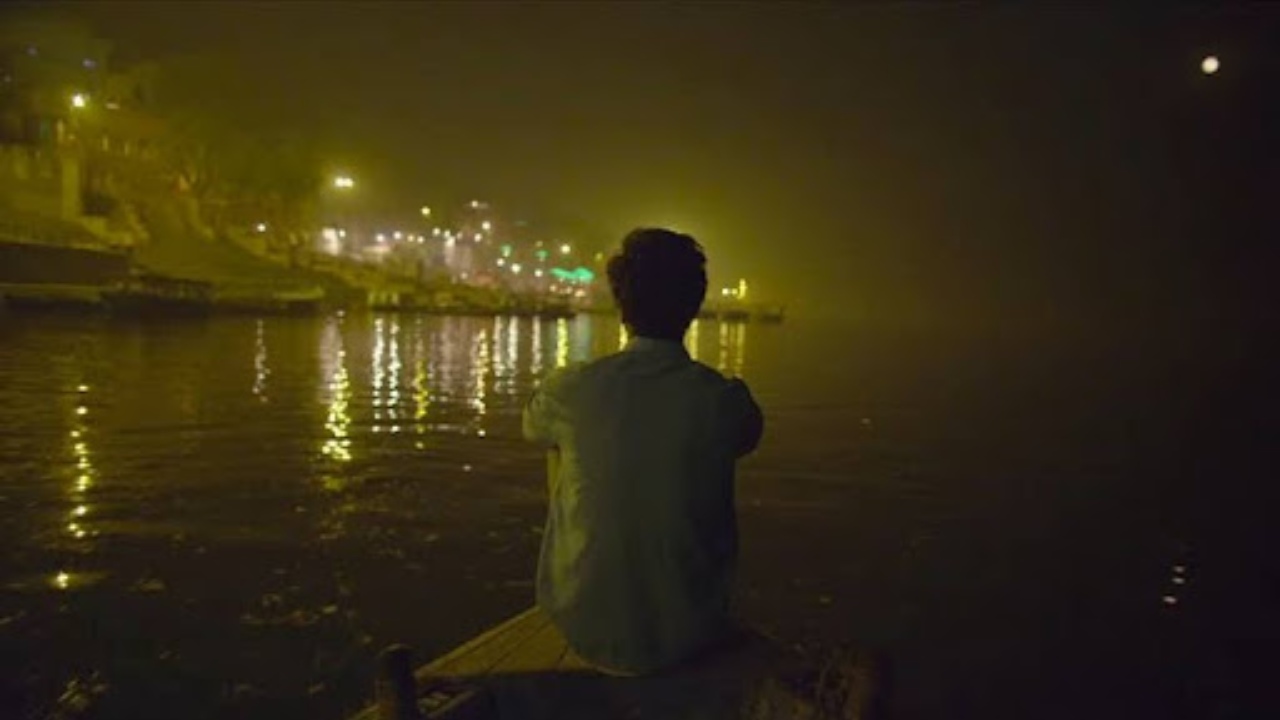“Relax,” said the night man, “We are programmed to receive. You can check out any time you like, but you can never leave.” (Hotel California)
Echoes right? You can check out anytime, but you can never leave. It’s this feeling that Masaan lays bare, ten years after its release. It lets us be in the world of grief, loss, and liberation, offering the illusion of escapism. But like the night man’s words, it reminds us that we can never truly check out.
The pain remains, the grief lingers, and the story doesn’t end with a neat little bow. There’s no finality, no resolution that wraps everything up and lets you walk away in peace. Instead, Masaan pushes us into an uncomfortable, inescapable space where death, like grief, is a constant companion.
The film doesn’t give us the luxury of closure. Devi’s lover, Piyush, dies early, unexpectedly, and in that brutal moment, we’re not handed a tidy goodbye. His death hits you like an unresolved rupture, one that leaves Devi suspended in a grief that society refuses to recognise.
She can’t mourn him fully because society doesn’t allow her the space to grieve for someone she’s not supposed to love in the first place. And then, there’s Shalu, whose sudden death before she can marry Deepak leaves us with a void, an absence that no conventional resolution can fill.
The lives of these characters are cut short, but in a way that denies them the dignity of a final act — a moment of peace. They are forever suspended, forever checked in, never allowed to leave.
Banaras, the setting of the film, is a place where people come to die, to find release. But it’s not that simple. Here, death isn’t a final escape from suffering; it’s part of the ongoing cycle of life. Here, your story doesn’t really end. Devi and Deepak are bound by the rules of society, by caste, by honour, and by expectations that chain them. Even as they try to move on, they are constantly pulled back to the unresolved, the unfinished.
The film ends with a meeting at the Sangam, a place where two rivers meet, symbolising the convergence of past and future, of hope and despair. But even here, there’s no promise of resolution. Are they finally free? Or are they simply two souls, forever trapped in a moment of coincidence? We’re left to wonder, much like we do with the night man’s words: can we really ever leave? Masaan doesn’t give us an answer. It leaves us with the haunting realisation that closure is an illusion, and life, like death, is not so easily escaped.
What I realise is that we are all like the characters in Masaan, caught in the same tension between checking out and never truly leaving. We search for that finality, that never really lands. And perhaps that’s where the true liberation lies — in accepting that the story doesn’t end, or maybe it shall begin again in a new way.

